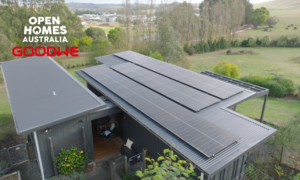With royal assent last week granted to Britain’s controversial Energy Bill, Britain is now committed to dramatically reduce its greenhouse gas emissions.
The Energy Bill will oblige the UK to cut gas emissions by 80 per cent by 2050 and additionally see the introduction of a feed in tariff, paying owners of small grid connected wind energy and solar power systems a premium rate on all electricity they produce.
Feed in tariff programs, when implemented properly, have been demonstrated to significantly boost the uptake of grid connected renewable energy systems in homes and businesses. However, for a feed in tariff program to achieve its full potential, it must be based on a gross model.
Under a gross model, payments are made on all energy produced, whereas a net program pays only on surplus electricity exported to the grid. A feed in tariff rate must also be high enough in terms of premium rate paid per kilowatt hour. The rate that householders and businesses in the UK will receive on electricity generated is yet to be determined.
Australia meanwhile is still thrashing out a nationalised, uniform gross feed in tariff program as proposed in a bill by Senator Christine Milne of the Australian Greens earlier this year. While most states offer feed in tariffs, prices and conditions vary widely and most are based on a net model that provides little incentive for home owners to install solar power systems.
It was expected by many in the renewable energy industry that that recent Council Of Australian Governments (COAG) meeting held over the weekend in Canberra would see a formal major announcement on the implementation of a national feed in tariff program, but according to the COAG communique:
“COAG agreed to a set of national principles to apply to new Feed-in Tariff schemes and to inform the reviews of existing schemes. These principles will promote national consistency of schemes across Australia.”
Timelines, details of the national principles and more in-depth information regarding the agreement between governments as discussed at the COAG meeting is not yet available; but no announcements were made regarding any federal funding of related programs.












































